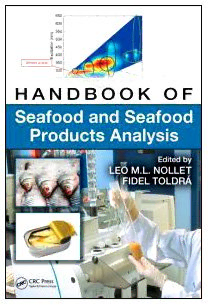
Handbook of Seafood and Seafood Products Analysis PDF
930 Pages·2009·9.591 MB·English
Most books are stored in the elastic cloud where traffic is expensive. For this reason, we have a limit on daily download.
Preview Handbook of Seafood and Seafood Products Analysis
Description:
Seafood and seafood products represent some of the most important foods in almost all types of societies around the world. More intensive production of fish and shellfish to meet high demand has raised some concerns related to the nutritional and sensory qualities of these cultured fish in comparison to their wild-catch counterparts. In addition, the variety in processing, preservation, and storage methods from traditional to modern is contributing to an increase in variability in consumer products. Co-Edited by Fidel Toldra - Recipient of the 2010 Distinguished Research Award from the American Meat Science Association Handbook of Seafood and Seafood Products Analysis brings together the work of 75 experts who focus on the chemistry and biochemistry of postmortem seafood to offer the very latest methods for testing nutritional and sensory qualities, as well as safety aspects related to processing and preservation of seafood. After providing a general introduction, this handbook offers six sections that detail all areas of consequence to those concerned with delivering quality seafood products: Chemistry and Biochemistry focuses on the analysis of the main chemical and biochemical compounds of seafood Processing Control describes the analysis of technological quality and includes various methods to differentiate between farmed and wild seafood, to check freshness, and to evaluate smoke flavoring Nutritional Quality deals with the analysis of nutrients in muscle foods such as essential amino acids, omega fatty acids, antioxidants, vitamins, minerals, and trace elements Sensory Quality covers the main analytical tools to evaluate color, texture, and flavor Safety looks at tools used for the detection of pathogens, parasites, viruses, marine toxins, antibiotics, adulterations, and chemical toxic compounds from the environment generated during processing or intentionally added This cutting-edge work also deals with the analysis of genetically modified ingredients in fish feed. It essentially covers processes from all of the seven seas used to assure that consumers find safe, nutritionally beneficial, and appealing seafood products at their markets and restaurants.
See more
The list of books you might like
Most books are stored in the elastic cloud where traffic is expensive. For this reason, we have a limit on daily download.
